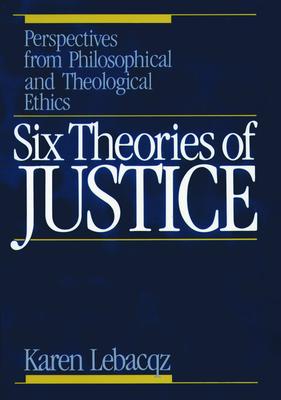There may be no more urgent cry today than that of "justice" -- and no more frequent accusation than that of "injustice." But what is meant when these terms are used? Six Theories of Justice clarifies that question and offers major alternative answers. Dr. Lebacqz surveys three philosophical approaches to justice: John Stuart Mill's utilitarianism, the "contract" system of John Rawls, and the "entitlement" views of Robert Nozick. These are followed by analysis of three theological approaches: that of the National Conference of Catholic Bishops, of Reinhold Niebuhr, and of the liberation theologian Jose Porfirio Miranda. A comparison of the effectiveness of each approach in providing direction for facing and dealing with contemporary issues and situations adds to the usefulness of this volume. A lucid and well-structured introduction to recent thinking in social ethics.

There may be no more urgent cry today than that of "justice" -- and no more frequent accusation than that of "injustice." But what is meant when these terms are used? Six Theories of Justice clarifies that question and offers major alternative answers. Dr. Lebacqz surveys three philosophical approaches to justice: John Stuart Mill's utilitarianism, the "contract" system of John Rawls, and the "entitlement" views of Robert Nozick. These are followed by analysis of three theological approaches: that of the National Conference of Catholic Bishops, of Reinhold Niebuhr, and of the liberation theologian Jose Porfirio Miranda. A comparison of the effectiveness of each approach in providing direction for facing and dealing with contemporary issues and situations adds to the usefulness of this volume. A lucid and well-structured introduction to recent thinking in social ethics.